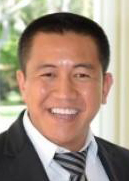A Quote by Nathan Englander
When you see 'editor' on a book, there are many permutations of what that title can mean.
Related Quotes
When I choose the title [for my book], which was my favorite title, I felt sure there was going to be a dozen books maybe with that name already because it's so obvious to me that that's the message. I was surprised it hasn't been the title of a single book. Well, there is a Shel Silverstein children's book called Falling Upwards. But no one has chosen Falling Upward as a title and I'm very happy it's right on the cover.
Forrest Mims is the author of the famous book 'Getting Started in Electronics,' published by RadioShack for many years. I bought the book in the 1980s and had a blast making the projects in it. When I was editor-in-chief of 'MAKE,' I asked Forrest to write a column for the magazine, called 'The Backyard Scientist.'






































